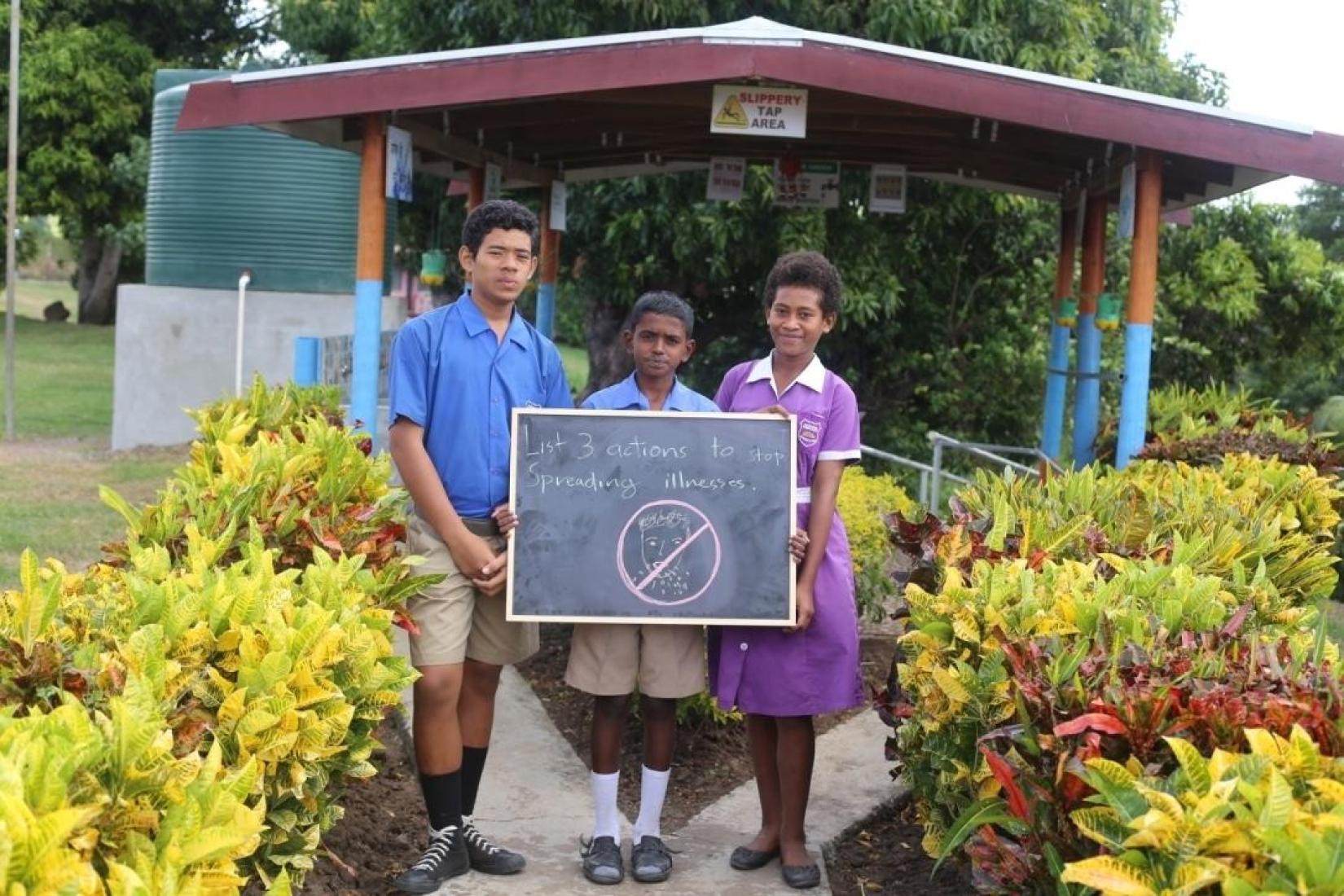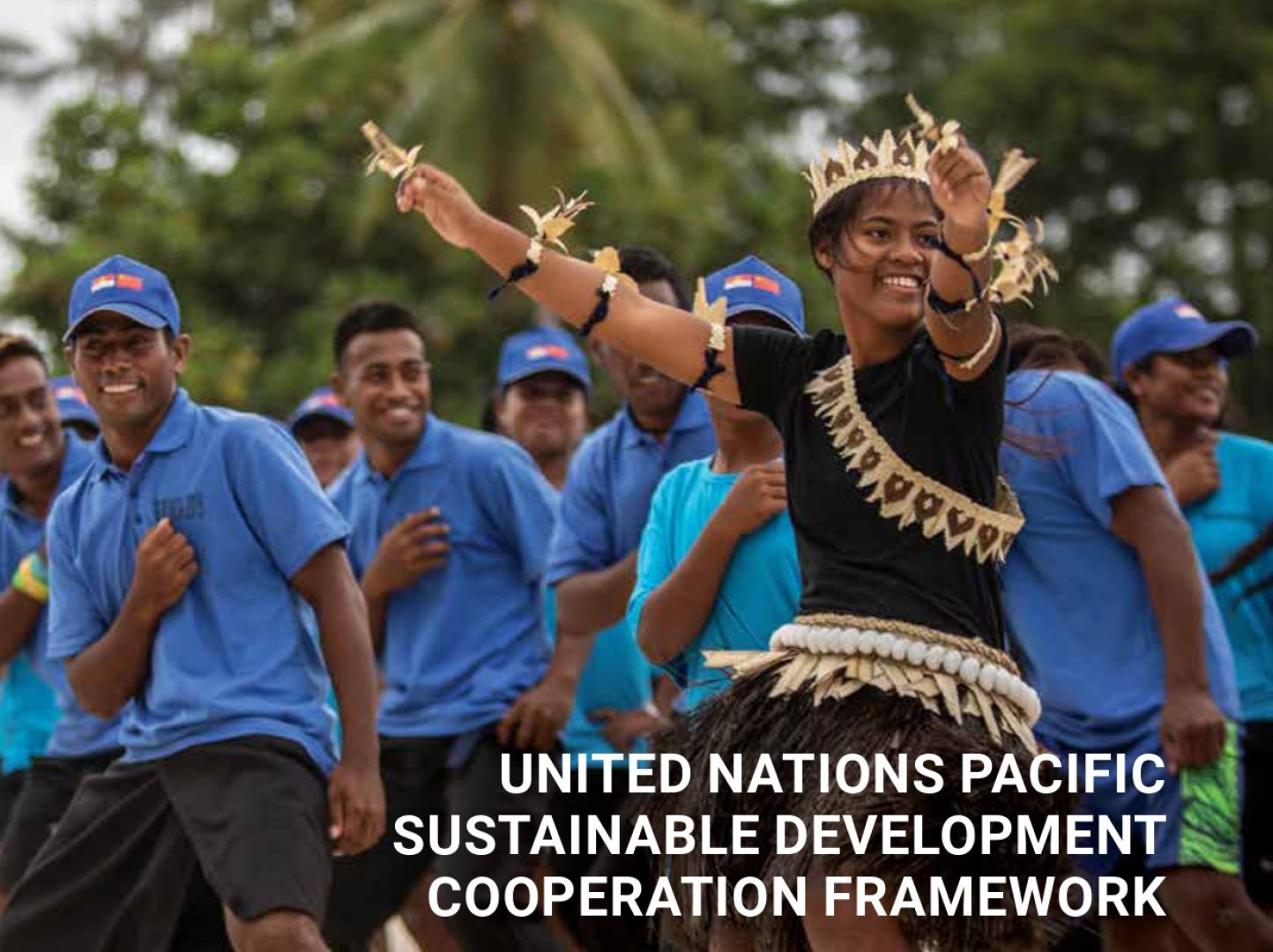UN multi-country engagement in the Pacific is led by three Resident Coordinators and a Joint UN Country Team linked across three regional hubs, operating regionally out of Fiji, Micronesia, and Samoa. There are five Pacific Island Countries and Territories (PICTs) under the leadership of the Fiji Multi-Country Office (MCO) including Fiji, Solomon Islands, Tonga, Tuvalu and Vanuatu; four PICTs under the leadership of the Samoa MCO including Cook Islands, Niue, Samoa and Tokelau; and five PICTs under the Micronesia MCO, including Federated States of Micronesia, Kiribati, Marshall Islands, Nauru and Palau.
There are 26 UN resident agencies in the Pacific. UN agencies such as UNHCR are based outside the region, but collaborate with in-country agencies and Joint Presence Offices and Country Coordination Specialists to meet their country level obligations. Non-resident agencies include IAEA (Geneva), UN Environment, UN-Habitat (Fukuoka), UNIDO and UNCTAD. These agencies implement projects and programs in the region in partnership with resident agencies
Development goals and objectives
The United Nations, in collaboration with Pacific Island Governments, regional organizations, civil society, and development partners, has developed a five-year Pacific Sustainable Development Cooperation Framework 2023 - 2027 aimed at advancing the achievement of the Sustainable Development Goals (SDGs) in the Pacific region. The primary objective of this framework is to create a Pacific region where all individuals have equal access to their fundamental rights, including gender equality, peace, and resilience to existential threats while coexisting harmoniously with the Blue Pacific Continent. The Cooperation Framework acknowledges the shared challenges faced by Pacific Island Countries and Territories as small island developing states (SIDS) and emphasizes the importance of a collective regional approach. It aligns with the Pacific Islands Forum's 2050 Strategy for the Blue Pacific Continent and focuses on four key pillars: Planet, People, Prosperity and Peace.
From Framework to Action – Country Implementation Plans
The Cooperation Framework in the Pacific region is structured around the development of two-year Country Implementation Plans (CIPs) for each of the 14 Pacific Island Countries and Territories. These plans are closely aligned with national needs and focus on four key outcomes: Planet, People, Prosperity, and Peace. They detail specific interventions, expected results, partner agencies, and financing to address each country's priorities. The interventions encompass various areas, including climate change adaptation, disaster risk management, gender-based violence prevention, healthcare and education improvement, food security, digital access, trade facilitation, and human rights. The United Nations plays a crucial role in merging national knowledge and operational experience with technical expertise and international best practices in the Pacific.
The CIPs are endorsed, implemented, and monitored with a strong emphasis on national ownership. This is facilitated through a Joint Steering Committee comprising government representatives, UN representatives, and partners. The UN's leadership is coordinated by three UN Resident Coordinators and UN Country Teams based in Fiji, Federated States of Micronesia, and Samoa, each covering a group of Pacific Island countries.




















